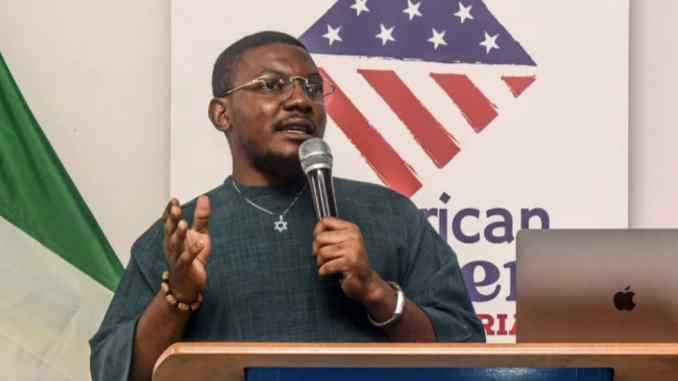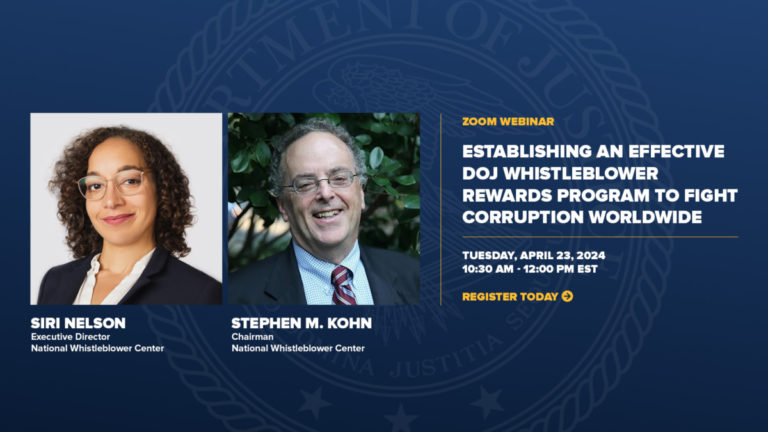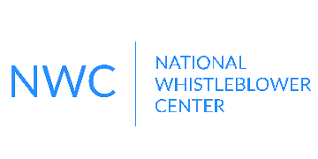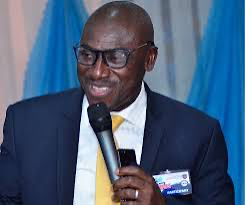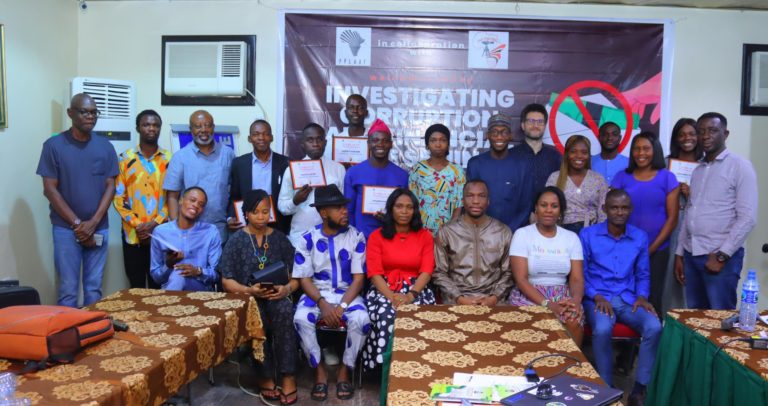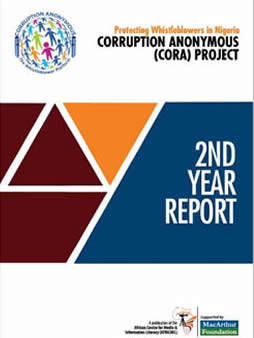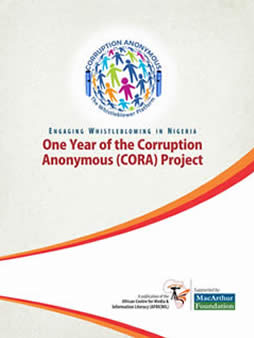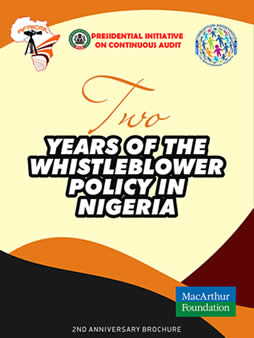By Abdulqudus Ogundapo
“If you are not a traveller, you won’t be allowed inside the terminal,” the check-in officer said flatly.
At first, this reporter was convinced that he might not find his way inside the terminal but to his surprise, he breached almost all security checkpoints. Not only that he entered, but he also navigated freely through the departure and arrival sections of the international airport.
This reporter arrived at the Murtala Muhammed International Airport, Lagos, at 3p.m. on Monday, November 22, 2021, under the pretext that he had come to pick his uncle who returned from the United Kingdom. The reporter’s arrival at the airport was just a few hours to the arrival of a London-bound British Airways flight.
“Why are you just standing here since morning, what do you want? How can I help you?” a female police officer enquired in a soft voice. The officer had her name, Bunmi Ayinla, inscribed just atop her right breast pocket.
“I am waiting for my uncle who is returning from the UK,” the reporter responded.
“Then you should wait over there,” said the officer as she pointed to a one-story building covered with a Techno Phantom advertisement. The building had a car park underneath.
“That place is too far, and I have been standing in the sun since morning,” the reporter replied angrily.
“Oga, do you have money? It is only money that can solve the problem,” she said again.
“How much are we talking about?” the reporter asked.
“I will take you inside, but you will pay N5,000. You will see your uncle as he alights from the plane.
“Are you serious?” the reporter enquired.
“Very well, but you will have to give me your phones. That is our policy,” the police officer responded again.
Although, this reporter knew it was a lie told for the purpose of extortion, he played along nonetheless and surrendered his phone to the officer at the entrance of the terminal.
Inside airport corruption
The Nigerian government has implemented policies that would make the country investor-friendly and encourage tourism. Some of the places targeted by these initiatives are the airports, where hawking and asking for tips have been discouraged. But despite these efforts, airport officials and attendants still devise ways to extort passengers.
Nigerians are considered some of the most widely travelled people around the world. In 2016, the National Association of Nigerian Travel Agencies disclosed that as much as $2.3 billion was generated by Nigerian travel agents in 2014 from ticket sales for foreign airlines and tour services.
As the airlines rake in huge revenues, their local travel agents have also created and fed on an illegal segment that thrives on extortion of travellers.
The two most affected airports are the nation’s most active international airports in Abuja and Lagos. At the Lagos airport, officer Bunmi signalled other police officers who manned the terminal entrance and they spoke briefly in whispers.
“You can go, take good care of yourself,” one of the officers told this reporter amid laughter. As we climbed a row of steps at the departure terminal, we headed towards the arrival. Scores of travellers were trooping in with their pieces of luggage, and I watched as we made our way to the arrival section.
“This is where you will stay. As soon as he exits the plane, you will see him immediately. I have dropped your phone with the officer that stays at the entrance of the terminal. Once you’re going make sure you collect it from him,” said the officer like a boss issuing commands to a subordinate.
In 2017, a report by the National Bureau of Statistics said an overwhelming percentage of Nigerians will accept a bribe when offered or pay a bribe when demanded. The NBS, in that Nigerian Corruption Survey report, said Nigerians mainly pay bribes to either speed up the procedure, receive preferential treatments or avoid the cancellation of public utilities.
Extortion gate
The reporter watched security officers stationed at the entrance of the terminal of Murtala Muhammad International Airport, Lagos, as they went about their usual extortion businesses. The terminal has about three entrances, each with at least two police officers and two other security officers. The way the officers stuffed money into their pockets was amazing as you could hardly see the currency, let alone the amount collected.
For about 20 minutes before the arrival of officer Bunmi, the reporter witnessed a series of cases where travellers would have to tip the officers before their accomplice would be allowed to follow them to the check-in counter. A middle-aged man sat on the floor opposite the terminal, his appearance showing he might have escorted one of his relatives to the airport. As this reporter tried to move closer to the man, a faint female voice called out, “Daddy.” A young lady kitted in sportswear waved at the man.
Quickly, the man rushed to her daughter who was at the entrance, dug his hand into his pocket and handed out some money to the officers. I watched the scene helplessly, but I could not ascertain the amount he gave the officers.
Another traveller had requested that her associate be allowed to follow her into the terminal, but the officers declined. After several pleas, the traveller offered the security officers some money and her associate was allowed in. The videotape of the scene showed how they bargained.
A Nigerian based in the United Kingdom, Olalekan Emmanuel, told PLATFORMTIMES that he was used to paying at the terminal whenever he was returning to the UK because he would always allow his cousin to follow him to the check-in counter.
“Those guys are my usual people,” he said. “They collect money from me each time I am going back to the UK so that my cousin can follow me to the check-in counter. The amount varies, sometimes N5,000 but there was a time I gave them N10,000.”
Corruption extension
PLATFORMTIMES findings at the airport revealed that the culture of extortion is not peculiar to security officers, it is common even among airport staff.
“Go through that way, you’ll see the toilet,” said a middle-aged woman dressed in a black and white t-shirt. After some minutes, this reporter came outside, and by this time the woman had waited for the reporter to come out. She stylishly stretched her hand and said, “Boss give us anything you have now, you know it is not easy.” The reporter offered a single N500 note. She grabbed it with joy all around her face, and then launched into prayers for her benefactor.
When this reporter left the arrival section after about 30 minutes of waiting, he headed back to the terminal to retrieve his phone from the police officer. “Now that your don arrive you suppose to give us something. You no go sha give us all the goodies wey him bring from the UK,” one of the officers said in pidgin English.
“I have given the woman police something, didn’t she extend it to you?” the reporter queried the officer.
“That one na small thing. I dey talk about better thing,” the officer responded.
The reporter opened his wallet, handed two N500 notes to the three officers and collected his phone.
An American vlogger, Tommy El Forastero, popularly known as Sabbatical, described the Murtala Muhammed International Airport, Lagos, as “a haven of extreme corruption.” Sabbatical said the facility and the activities going on there perfectly detail corruption. He tours the world and shares experience with followers. He lamented how airport staff in Lagos requested money at different points.
Forastero posted the video he made within the airport on his YouTube page.
“I have been around the world, and I have never seen anything like this. I mean, it’s extremely corrupt. Picture corruption. The Nigerian airport, the Lagos airport is that very definition of corruption that would pop up in a dictionary everywhere,” he said.
The criticism by Sabbatical came weeks after another American, Alina Oliver, accused the Lagos international airport workers of corruption.
Police officers beg travellers for ‘welfare’
This reporter was shocked when he sighted police officers running after travellers at a small checkpoint to the departure section, demanding they should contribute to the welfare of security officers. Dressed in a black t-shirt with the inscription ‘Remembrance of Armed Forces Day (RAFD),’ they held a can where they kept money just like the way students of higher institutions do when they go about their ‘rag days.’
Some of the travellers felt embarrassed as the officers ran towards them, asking for contribution to the welfare of security officers. While some gave out what they could afford, others simply ignored the officers.
“I do not know which country something like this can happen. They are just painting Nigeria badly before foreigners. What is the meaning of all this?” one of the travellers grumbled towards the entrance of the terminal. The traveller’s lamentation caught the reporter’s attention and so he decided to further observe how frustrating the behaviour of the officers could be.
As the reporter walked towards the area, one of the officers whispered, “Fine boy, come.” Since the reporter knew the reason for the ‘fine boy’ comment, he opened his wallet and offered the officers N500. And then prayers of gratitude for the reporter’s generosity poured out in return: “God bless you. May your days be long. Thank you.”
In 2017, then Acting President, Yemi Osinbajo, signed three Executive Orders aimed at facilitating the ease of doing business in Nigeria. The orders, Mr. Osinbajo said at the time, essentially sought to save time and cost, and promote transparency and efficiency in the business environment.
The order, to a certain degree, conforms with the government’s resolve to generate more money from travel and tourism, considered an important source of revenue for the government. In June, the bureau of statistics said tourism accounted for 34 per cent of GDP and about 20 per cent of the nation’s employment creation in 2017.
The order states among others that: “There shall be no touting whatsoever by official or unofficial persons at any port in Nigeria. “On-duty staff shall be properly identified by uniform and official cards. Off-duty staff shall stay away from the ports except with the express approval of the agency head. The FAAN Aviation Security (AVSEC) and Nigeria Ports Authority (NPA) Security shall enforce this order.”
It further directed that all non-official staff should be removed from the secured areas of airports.
“No official of FAAN, Immigration, security agency or Ministry of Foreign Affairs (MoFA) or any other agency is to meet any non-designated dignitary at any secure areas of the airport. The officially approved list of dignitaries that have been pre-approved to be received by protocol officers shall be made available to AVSEC and other relevant agencies ahead of their arrival at the airport,” it said.
Also, according to the executive order, any official caught soliciting or receiving bribes from passengers or other port users shall be subject to immediate removal from post, disciplinary action as well as criminal proceedings in line with extant laws and regulations.
In compliance with the executive orders, the Federal Airport Authority of Nigeria (FAAN) introduced new check-in procedures for passengers in adherence to global standards. The agency introduced a central screening and check-in point for passengers, irrespective of the airline they are travelling with. Accordingly, all customised check-in counters used by airlines were removed at the Murtala Muhammed International Airport
Visitors, travellers shun threats
FAAN had issued warning to visitors and travellers to stay away from parking spaces, and not to wait at the entrance of the terminal. The order, written boldly on the wall, stated that anybody found guilty would pay N50,000 as penalty. But visitors and some travellers were sighted lobbying around the terminal area. While some sat on the wall, many others were sighted sitting on the floor despite the warning.
FAAN reacts
When this reporter contacted Henrietta Yakubu, the spokesperson of FAAN, she said she would send her response through email. Questions and the email address of the reporter were sent to the Yakubu’s phone number. However, as at the time of filing this report, she had yet to send her response.
This story was funded by the African Centre for Media & Information Literacy (AFRICMIL) with support from MacArthur Foundation.







